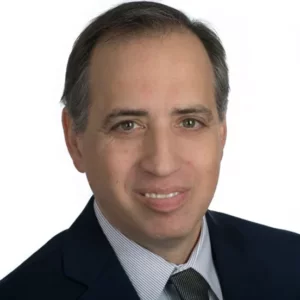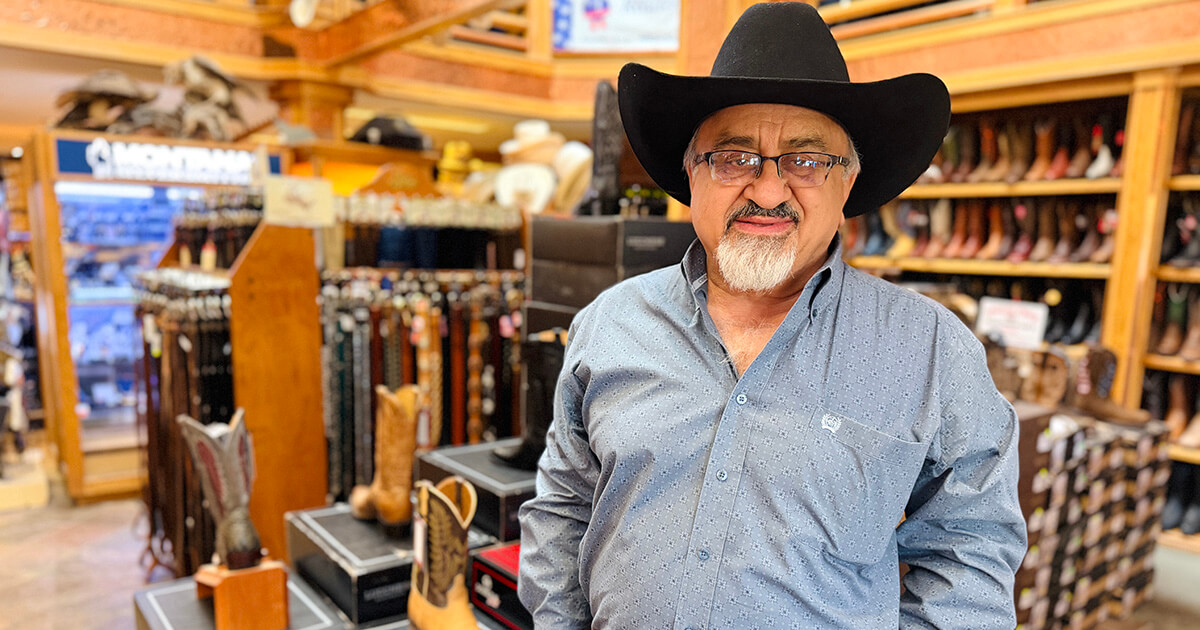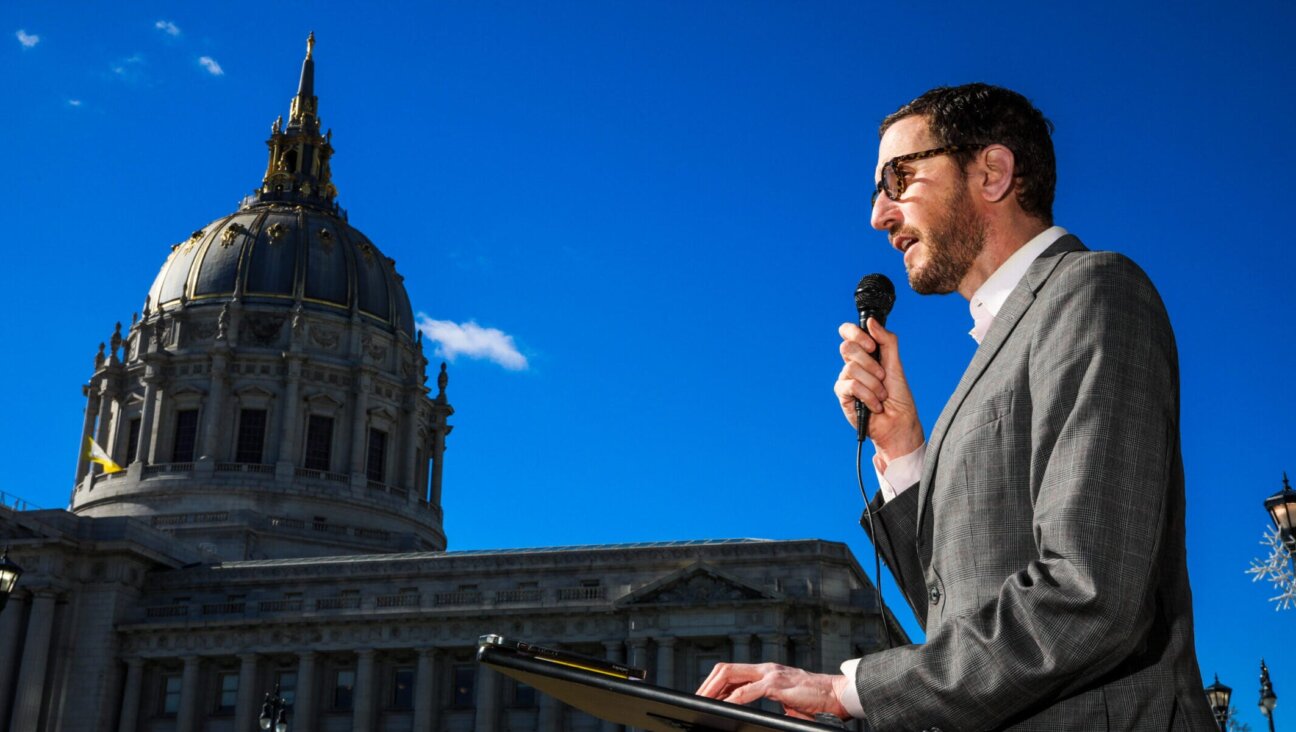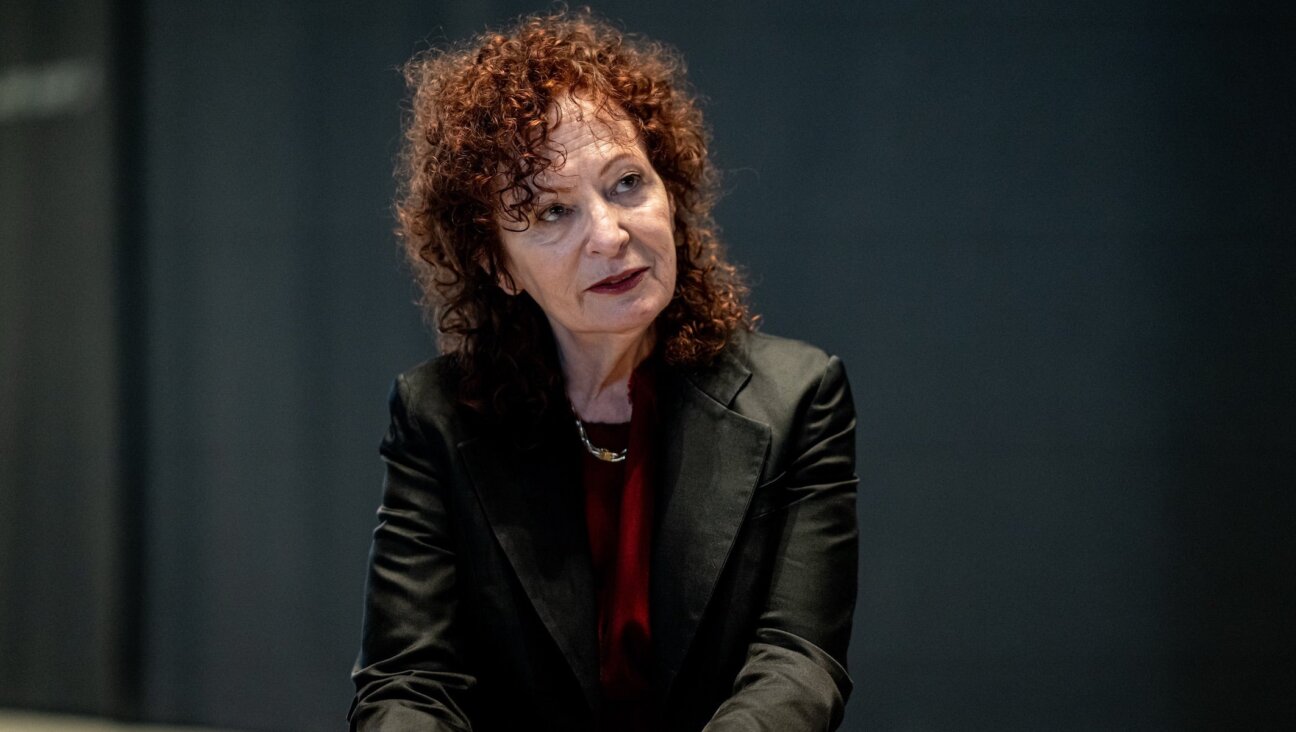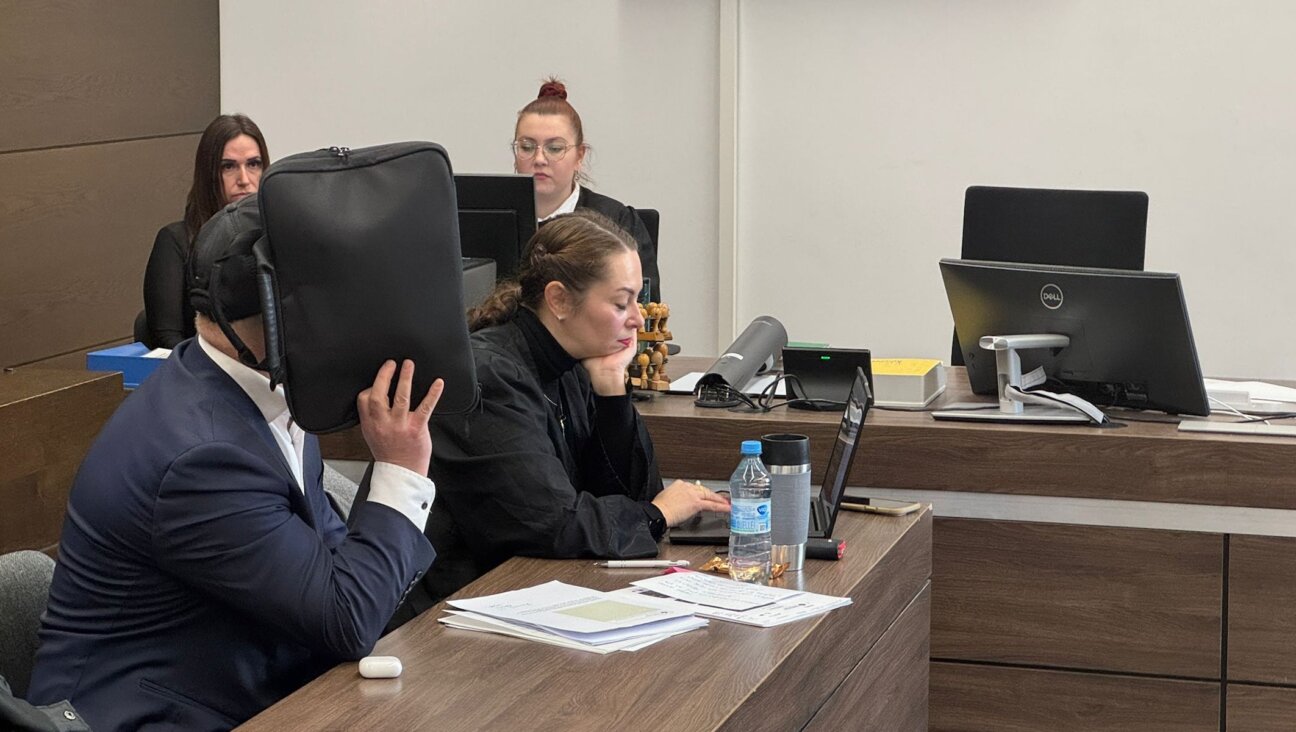‘A challenge to the soul of man’: 80 years ago, Hollywood stars pleaded for Europe’s Jews
The audience at the mass memorial overflowed Madison Square Garden, the site four years earlier for a rally of American Nazis
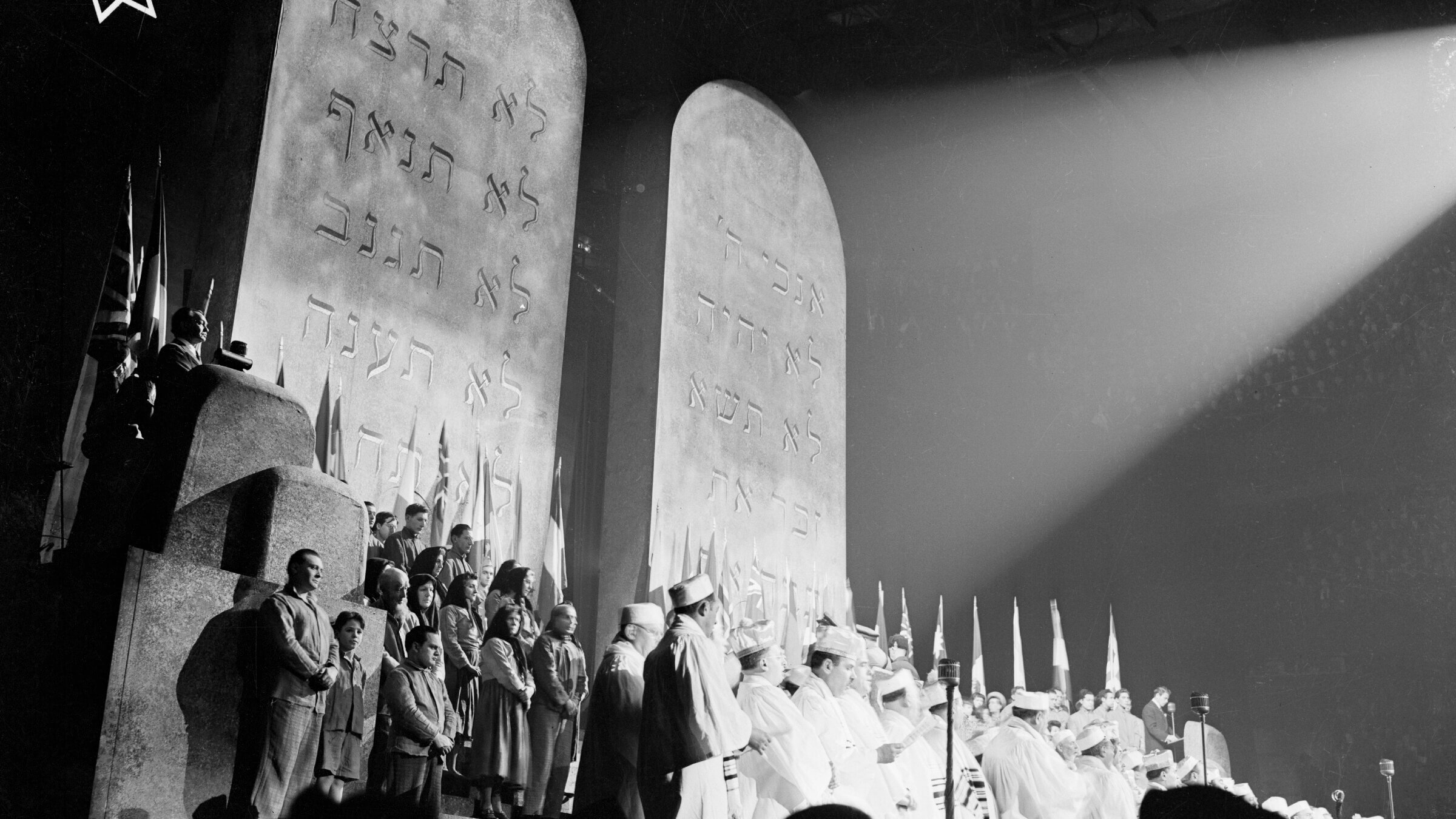
In the final scene of “We Will Never Die” at Madison Square Garden in March of 1943, cantors sing kaddish for the 2 million Jews who had already died in the Holocaust. Courtesy of Getty/Bettman Collection
Eighty years ago this month, some of the biggest-name Hollywood and Broadway actors staged a pair of sold-out pageants at Madison Square Garden to pressure the United States and its allies to halt the Nazi genocide against European Jews.
The March 9, 1943, New York City performance of “We Will Never Die” would be repeated in several cities, including Washington, D.C., where First Lady Eleanor Roosevelt, 200 members of Congress, and seven Supreme Court justices attended. Roosevelt called it “one of the most impressive and moving pageants” she had ever seen.
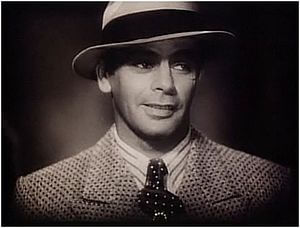
It featured movie star Paul Muni, famous for his role in the 1932 film Scarface; actor Edward G. Robinson, known for his depictions of 1930s gangsters; and Jacob Ben Ami, a founder of the Jewish Art Theater in New York.
Backing them was a cast of hundreds, including 20 rabbis rescued from European ghettos, most wearing black gowns and white prayer shawls, and actors portraying Jewish soldiers fighting for the American military. The backdrop was an enormous display of the Ten Commandments, each tablet 40 feet high. The orchestra played Kurt Weill’s original score as well as “The Battle Hymn of the Republic.”
“Forty thousand persons listened and watched in emotional silence in Madison Square Garden last night to two performances of ‘We Will Never Die,’ a dramatic mass memorial to the 2,000,000 Jews killed in Europe,” The New York Times reported after the New York shows. “The memorial was staged to stir the Allied nations to stop the slaughter of a people by the Germans.”
There were two shows that night — one at 8:30 and another at 11 — while an overflow listened outside to a broadcast.
But though the pageant, tied to a newspaper ad campaign, filled venues and caught the wider public’s attention, it ultimately failed — in that the Nazis would kill 4 million more Jews. The question as to why the U.S. and its allies waited so long to intervene still stands.
In 1943, some Americans knew about the Holocaust, but many didn’t — or didn’t believe it was actually happening. Others sympathized with the Nazis. Four years before the staging of “We Will Never Die,” 20,000 people attended a 1939 German American Bund rally — also at Madison Square Garden.
It featured a giant portrait of George Washington flanked by two large swastikas. Audience members at the Garden held up posters that said, “Stop Jewish Domination of Christian America,” and denounced President Franklin D. Roosevelt as “Rosenfeld.” The Bund had openly supported Adolph Hitler and the rise of fascism in the years leading up to World War II.
Kaddish for 2 million
“We Will Never Die” took form when Ben Hecht, one of Hollywood’s greatest screenwriters, teamed up with militant Zionist Peter Bergson, whose Committee for a Jewish Army was campaigning for a Jewish army to fight under the Allies.
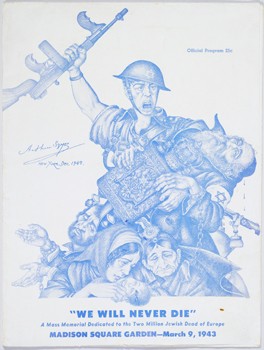
In late 1942, American newspapers had reported that the Nazis had already killed 2 million European Jews, but as the U.S. Holocaust Memorial Museum noted in an online article, only 48% of Americans in a January 1943 poll believed it. Hecht, who was Jewish, wrote a magazine exposé in The American Mercury called “The Extermination of the Jews,” which was later excerpted in Reader’s Digest as “Remember Us.”
He then decided to write the pageant to raise awareness of the plight of Europe’s Jews, and collaborated with Bergson, who had already planned a Madison Square Garden rally that was to be called “Action — Not Pity.” Instead, Bergson agreed to stage “We Will Never Die,” according to the Holocaust Museum article.
In a 2019 New York Times book review, writer Mark Horowitz described Hecht as someone who hated politics, viewing all politicians as corrupt.
“But unexpectedly, in middle age, Hecht dropped everything to become a propagandist and political organizer, in a nationwide campaign to pressure the Roosevelt administration to rescue the endangered Jews of Europe,” Horowitz wrote. “His dramatic transformation surprised his friends and colleagues, and may reveal more about the man than any of his Hollywood successes.
The pageant’s program cover featured a muscular soldier with a Star of David on his helmet, hoisting a rifle in one hand, while he cradles suffering Jews, including one who is clutching a Torah, in the other. Under the title of the performance read the words, “A Mass Memorial Dedicated to the Two Million Jewish Dead of Europe.”
“The Germans have promised to deliver to the world, by the end of the year, a Christmas package of 4 million dead Jews,” Muni tells the audience. “And this is not a Jewish problem. It is a problem that belongs to humanity, and it is a challenge to the soul of man.” Muni, who had been born to a family of Polish Jewish actors, and Robinson, who grew up in a Yiddish-speaking family in Romania, narrated the pageant.
In one scene, actor Jacob Ben Ami stood between the tablets and read a prayer:
“Almighty God, father of the poor and weak, strength of the righteous and hope of all who dream of goodness and justice, we are here to say our prayers for the two million who have been killed in Europe because they bear the name of your first children — the Jews. We are not here to weep for them. We are here to honor them and to proclaim the victory of their dying. For, in our Testament are written the words of Habakkuk, prophet of Israel, ‘They shall never die.’ … They were unarmed, but not we.”
The final scene depicts actors negotiating a peace conference to end the war, as a narrator makes a hauntingly prescient prediction: “There will be no Jews left in Europe for representation when peace comes. The four million left to kill are being killed, according to plan … No voice is heard to cry halt to the slaughter, no government speaks to bid the murder of human millions end. But we here tonight have a voice. Let us raise it.” The pageant ended with participants singing the Jewish prayer for the dead, the kaddish.
Four million more Jews would be killed in the Holocaust — the Nazis ultimately murdered 6 million, or two-thirds of Europe’s Jews.
A concerted campaign
The show was part of a concerted pressure campaign by Bergson and Hecht, who “produced an avalanche of newspaper advertisements charging the [Roosevelt] administration with ignoring the plight of Europe’s Jews,” as the recent Ken Burns documentary, The U.S. and the Holocaust, noted.
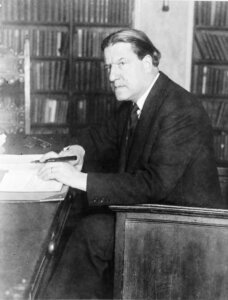
The day after the show, the Committee for a Jewish Army ran an ad in The New York Times headlined, “The People Have Spoken,” and urged: “Save the 4,000,000 remaining Jews of Europe by Action — Not Pity.” The ad, signed by Colorado Democratic Sen. Edwin C. Johnson, the chairman of the Committee for a Jewish Army, urged three steps:
- An intergovernmental commission of military experts to come up with a policy to “stop the wholesale slaughter of European Jewry.”
- The creation of a Jewish Army to “raid deep into Germany.”
- The transfer of Jews from “Hitler-dominated countries to Palestine or any temporary refuge.”
Johnson challenged: “It will be sinful if we do not agree upon a policy of action to save the millions who still survive and carry it forward without further delay with all our energies and might.”
“Action — Not Pity” was a message used in other Committee for a Jewish Army ads, and allies used it as a rallying cry as well. In a 2020 House speech, then-Speaker Nancy Pelosi quoted remarks that her father, Rep. Thomas D’Alesandro Jr., D-Md., made on March 2, 1943, one week before the New York performance of “We Will Never Die.”
“Action, not pity, can save millions now — extinction or hope for the remnants of European Jewry?” D’Alesandro said. “It is for us to give the answer … We will spare no effort and have no rest until the American public will be fully informed of the facts and aroused to its responsibilities.”
The night before D’Alesandro’s speech, Rabbi Stephen Wise, president of the American Jewish Committee, led a mass demonstration of Jews and Christians at Madison Square Garden, demanding action to save Europe’s Jews. An overflow of 10,000 people on 49th Street listened to that rally on loudspeakers.
On April 12, “We Will Never Die” filled Constitution Hall in Washington, putting the barbarity of the Holocaust in front of an audience that Hecht and Bergson were targeting, including some of FDR’s Cabinet members. Two days later, Eleanor Roosevelt praised the performance in her syndicated column.
“No one who heard each group come forward and give the story of what had happened to it at the hands of a ruthless German military, will ever forget those haunting words: ‘Remember us,’” she wrote. “All the way through, I thought how important it is in this country that we do not for a moment allow intolerance and cruelty to creep into our dealings with any of our own people, or with any people who have taken refuge among us.”
The pageant also played in several other cities, including Philadelphia, Boston, Chicago and the Hollywood Bowl in Los Angeles. Overall, an estimated 100,000 Americans saw it.
Of course, it did not stop the Holocaust. But as The Washington Post observed in a 1993 retrospective story, “‘We Will Never Die’ did have an impact, however. In January 1944, mounting congressional and public pressure led Roosevelt to establish the War Refugee Board and thereby officially recognize the uniqueness of the Jewish Question as distinct from the general refugee problem.”
